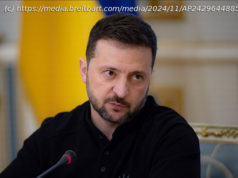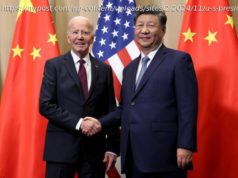WASHINGTON – Three years ago, a lieutenant in the Moscow office of Russia’s military intelligence service sent a stream of innocuous-looking emails that altered…
WASHINGTON – Three years ago, a lieutenant in the Moscow office of Russia’s military intelligence service sent a stream of innocuous-looking emails that altered the course of American politics.
The messages were meant to look like security alerts from Google, and they directed recipients to a website controlled by the Russian government where they were asked to enter their email passwords. They went to hundreds of people associated with Hillary Clinton’s presidential campaign and were alarmingly effective: Within days, the fake alerts enabled the Russian government to harvest tens of thousands of emails from Clinton’s campaign chairman.
You know what happened next – a 22-month investigation into Russian election interference during the 2016 campaign and whether there was any coordination with Donald Trump or his aides.
That work comes to its climax on Thursday, when the Justice Department says it will reveal special counsel Robert Mueller’s detailed report.
The Tump team’s Mueller report game plan: Read the report quickly and put out responses
Democrats: As the Mueller report looms, Democrats find voters would rather talk ‘kitchen-table’ issues
In his summary of Mueller’s conclusions released in March, Attorney General William Barr said investigators had gathered evidence of “multiple offers from Russian-affiliated individuals to assist the Trump campaign,” but left unanswered what became of them. Those answers have remained secret as the Justice Department has weighed how much of the report to make public.
Until that happens, the charges Mueller’s office filed – and the charges it didn’t – offer the best indication of the central findings of an investigation that raised the extraordinary question of whether Trump was involved with Russian efforts to sway the election in his favor.
Barr said in March the answer to that question was unequivocal: “The Special Counsel’s investigation did not find that the Trump campaign or anyone associated with it conspired or coordinated with Russia in its efforts to influence the 2016 U. S. presidential election,” he wrote in a letter to Congress.
The release of Mueller’s full report – nearly 400 pages covering evidence obtained through hundreds of interviews and thousands of demands for documents – could give Congress and the public answers to more nuanced questions: If the evidence did not establish a criminal conspiracy with Russians, what did it establish?
Barr’s summary and hundreds of pages of court documents Mueller filed during his investigation showed it sprawled beyond the provocative issue of Trump’s ties to Russia. The investigation documented Russian outreach to Trump’s campaign, and the eagerness of aides to benefit from the efforts. And it accused some of those aides of lying to downplay those connections.
“No serious person disputes now that the government of Russia engaged in an aggressive and far-reaching campaign of interference in the 2016 presidential election,” said David Kris, the former head of the Justice Department’s national security arm and a founder of the consulting firm Culper Partners.
Home
United States
USA — Political Mueller report: What will it say about the Trump campaign and Russia's...






